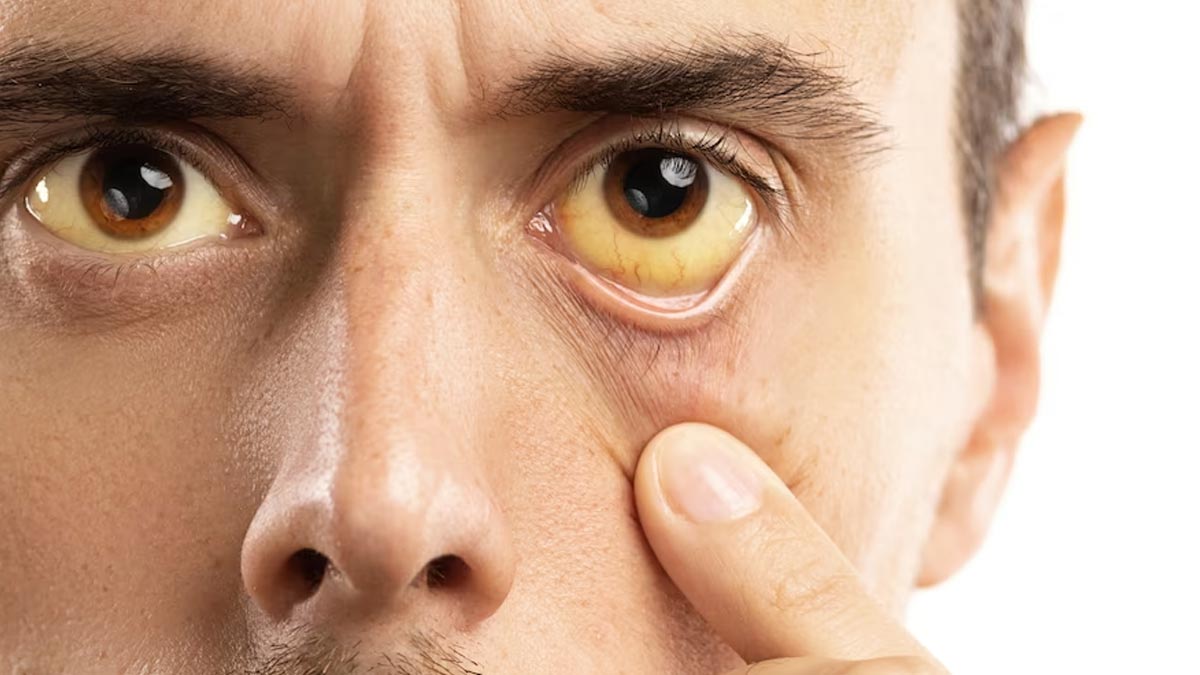
Yellowing of the skin is often a result of jaundice, a condition that is not a disease in itself, but occurs due to an underlying health issue associated with the liver, gallbladder, or bile ducts. According to Dr CH Krishna Tej, Senior Gastroenterologist, Kamineni Hospitals, L.B Nagar, jaundice symptoms go beyond skin discolouration, which include yellowing of the eyes, darkened urine, pale stools, fatigue, itching, and abdominal discomfort. The range of symptoms can often create confusion and lead to delayed diagnosis. Therefore, speaking with the OnlyMyHealth team, Dr Tej, discusses why jaundice occurs and the many conditions that can lead to it.
Also Read: Jaundice: Symptoms, Causes, Risk Factors And Treatment
What Causes Jaundice?

According to Dr Tej, jaundice occurs when excess amounts of bilirubin, which is a yellowish substance produced during the breakdown of Red Blood Cells (RBCs), builds up in the bloodstream, causing yellowing of the skin.
Also known as hyperbilirubinemia, jaundice is more prevalent among newborns and elderly. Research suggests around 20% of term babies are found with jaundice in the first week of life, mainly because of an immature hepatic conjugation process.
In adults, jaundice can be caused by excessive bilirubin production, liver dysfunction, and bile duct obstruction, says Dr Tej, suggesting that these mechanisms are often interconnected.
"For instance, liver diseases can lead to both impaired bilirubin processing and bile duct obstruction, compounding the risk of jaundice. certain risk factors such as alcohol abuse, viral infections (hepatitis), and specific genetic conditions can predispose individuals to jaundice," he explains.
Health Conditions That Can Lead To Jaundice

Most often, jaundice is caused due to an underlying condition which impacts how the bilirubin is processed and metabolised. Common health problems include hepatitis, cirrhosis, and alcoholic liver disease.
Hepatitis A was found to be the most afflicting cause of jaundice among children, whereas bile duct stones, drug-induced liver disease, and malignant biliary obstruction were prominent causes in the elderly population, according to a research published in the StatPearls Publishing.
The same research suggested that men are more affected by alcoholic and non-alcoholic cirrhosis, chronic hepatitis B, malignancy of pancreas, or sclerosing cholangitis as compared to women, who showcase higher incidences of gallbladder stones, primary biliary cirrhosis, and gallbladder cancer.
Also Read: Jaundice Diet: Here Are Some Foods Groups To Avoid If You Have Jaundice
In addition, Dr Tej says, “Bile duct obstruction caused by gallstones or tumours can also impede bile flow and result in obstructive jaundice.”

Furthermore, hemolytic anaemia, where red blood cells break down excessively, can overwhelm the liver with bilirubin, he shares, adding, “Medications, toxins, and exposure to harmful substances can also contribute to jaundice.”
In newborns, conditions like hemochromatosis and Gilbert's syndrome can also cause jaundice.
Bottomline
Jaundice is not a standalone ailment, rather an indicator of an underlying medical condition, which can range from several types of liver diseases to cancer to certain medications. According to the expert, understanding the root cause is crucial for diagnosing and managing jaundice effectively, as treatments may vary from disease to disease.







